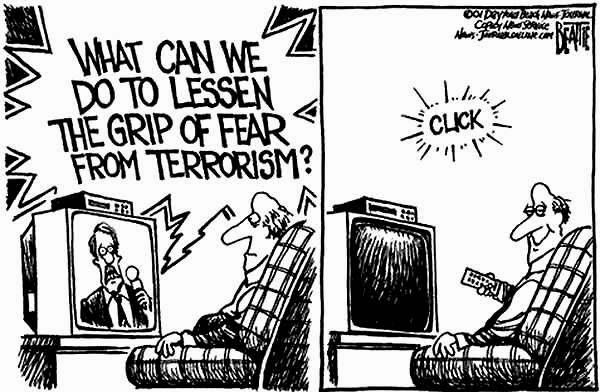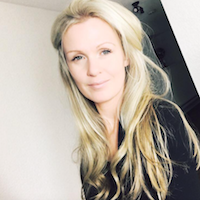
Anyone who knows my story knows that one of the big reasons I left traditional TV news was because of the nagging feeling that I, on a daily basis, was contributing to the amount of darkness in the world.
Aware of the massive reach and responsibility mainstream media had, I knew that the work I did was penetrating the minds of many, and literally affecting their worldview—usually in a negative way. I noticed how I, and many of my colleagues, were often desensitized to horrific things, just like much of the public increasingly is these days.
My breaking point was when I was out covering a story one crisp fall morning. A teenage refugee had been gunned down in a community centre, his family standing outside screaming, wailing, and holding each other up for support as his lifeless body was rolled outside…
I sat there numb, my eyes darting back and forth between them, and my camera man was about to roll on capturing their very personal grief so we could broadcast it to the world. A good little reporter would have then run up to them to try to get a quick clip. I didn’t. But I had in similar situations many times before.
“Why? What is the point? What the f*ck are we doing?” rolled through my mind. What point is there in this story as I was sent out to tell it? Are we changing the world in a good way by telling it? Are we actually sparking positive change by broadcasting darkness? No and f*ck no.
Something in me broke open at that very moment, and I felt so disgusted and ashamed with myself and the role I was playing in the world.
I was done.
I handed in my resignation letter the very next morning, worked my final shifts and bid goodbye to my career in TV news, one I had strongly identified with for nearly a decade. “Good riddance…” was my social media update that day.
After I left, I became increasingly vocal about how I felt incessant bad news was messing with people’s minds and negatively shaping their worldview. Needless to say, many of my former colleagues stopped talking to me…but since then, many have also made the same decision for themselves. Kudos.
A few years later, a tragic accident happened at my daughter’s elementary school. A boy in third grade was strangled after his lanyard was caught up in a bathroom stall. The next morning, I drove to the school to drop her off, and of course two of my former colleagues were parked right in front of the door about to do a live morning show hit, running around interviewing parents and kids about what had happened. I can’t express how disgusted I was. I pulled up behind the female reporter to have a word, but she refused to even turn around and look at me.
Was it her fault? No. She was put on that story, and that is the nature of the beast.
The most shocking, horrific, tragic stories always get priority. Why though, if they’re not actually representative of the whole, of what’s actually happening more frequently around us?
The people I know who are glued to any news network 24/7 are generally miserable, fearful, and, in short, just not overly happy people. Then, they turn around and broadcast that same vibe to everyone around them. On the flip side, those I know who have either tried news fasts or don’t consume mainstream content are overall happier and more successful…and they’re a lot more pleasant to be around.
It’s no surprise and pretty much common sense. Exposure to negative and violent media has been long proven to have serious and long-term psychological effects: the development of stress, anxiety, depression, and even post-traumatic stress disorder (PTSD).
Garbage in, garbage out.
Do bad things happen? Yes.
Do we need to know about them? Sometimes.
Do we need to fill our minds with and obsess about darkness and negativity as much as we do? No way. Unless that’s what we want more of in our lives.
Remember: what we focus on expands.
Please read that again: what we focus on expands.
There is no exception.
For those of us who still have an active voice in media—we’ve actually never had more power to broadcast the messages we believe in.
I believe more of us need to take a stand when we are considering which stories to cover and which messages to broadcast.
Even if it’s not 100 percent “positive,” ask yourself, “Is it constructive?” We have a huge opportunity to guide the conversation and revelations beyond the facts, and it’s as simple as finding an angle that is constructive, progressive, even helpful to your viewers and readers.
Think of the positive impact that could have on the world as a whole.
Journalism needs to be strengthened and innovated from the inside out; instead of fear, drama, and negativity, I challenge everyone in media to, just once, try your hand at focusing on progress and possibility instead.
What kind of world do you want to see the future generations to live in?
It’s important work—and together, we can do this.
~
~
`
Author: Lisa Ostrikoff
Image: Imgur
Editor: Travis May
Copy Editor: Callie Rushton
Social Editor: Waylon Lewis






Read 0 comments and reply